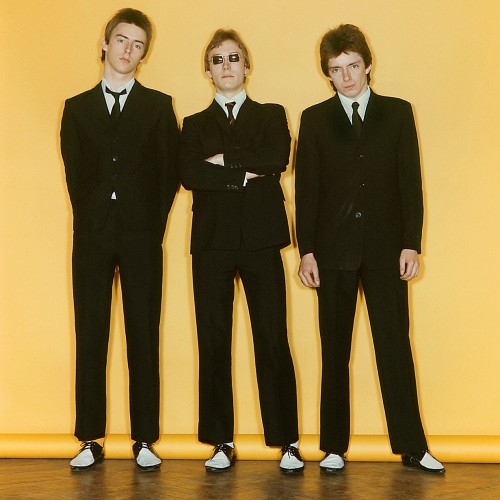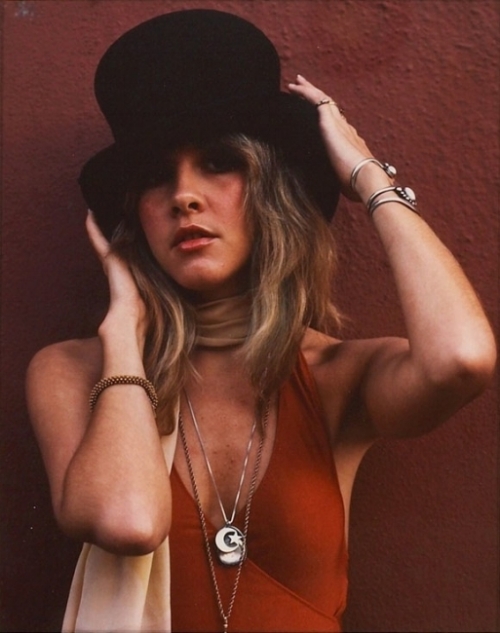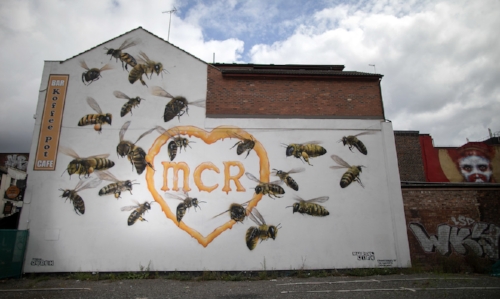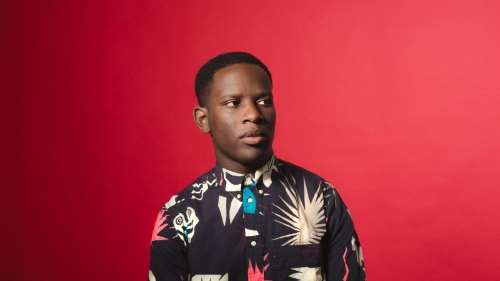FEATURE:
The Masses Against the Middle-Classes?
ALL PHOTOS/IMAGES (unless credited otherwise): Unsplash
Is There An Identifiable Working-Class Vote in Music?
__________
THE last time I looked at the issue of class in music…
was last year - and a time when I was starting to see a few working-class bands working their way into the industry (although, not as many as there should be!). I have been looking at the change in music and whether things have improved over the past few years. It seems 2015 was a pivotal year when a lot of commentators were reacting to the mainstream: too many middle-class artists providing rather boring and generic music. One great article, back in 2015, saw Stuart Maconie write for the New Statesman - an article I quoted when writing about class last September. He addressed the Pop artists gaining most traction and whether their voices reflected the working-class and had an iota of truth to them – or they were geared more towards those with wealth and privilege. His findings suggested wealth and that gaudiness dictates our views and what life is all about:
“…Returning to pop. The piqued Blunt was in the vanguard of a gradual but now almost total cultural shift by which popular music has become as essentially bourgeois as the Boden catalogue. When I worked at the NME in the early 1990s, writers from leafy suburbs would affect proletarian tropes, trousers and vowels to ingratiate themselves with Oasis, New Order or Happy Mondays. Nowadays, adroit navigation of the wine list or the ski slope is probably a more useful way into a band’s confidence…
IN THIS PHOTO: Florence Welch/Florence + the Machine (although one of music's very best, she seems indicative of the middle-classes who still have a majority say in the mainstream)/PHOTO CREDIT: Vincent Haycock
As the writer Simon Price put it wryly, it’s only a matter of time before a pop version of the infamous Johnson/Osborne/Cameron Bullingdon Club photo surfaces, featuring several leading members of future indie-rock acts looking supremely entitled in frock coats and wing-collared shirts.
This is easily dismissed (especially from above) as chippiness or, in Blunt’s terms, “jealousy”. To be fair, I should point out that I am referring to mainstream rock and pop. Grime, hip-hop and dubstep are still rooted in an urban milieu of zero-hour contracts and pound shops. It has been suggested that as much of 60 per cent of the pop charts of recent years has been occupied by privately educated musicians but this seems highly debatable”.
That piece was written several years back and seemed to nail what many people were trying to say. Whilst the viewpoint then – that the percentage of middle-classes in music was huge – was exaggerated for dramatic effect; there was truth to suggest the profile of the working-class musician was but a memory. There were working-class acts working in areas like Grime and Hip-Hop – talking about their lives and the struggle they faced – but they were/are in the minority. Noel Gallagher, in 2015 too, talked about music and whether he felt working-class artists had a voice:
“…The singer-songwriter, who found fame with iconic Manchester band Oasis has blamed the recession on the reason people from poorer backgrounds struggled to find success in the industry.
He said: “I think with the recession and all that there’s a few things that have happened.
IN THIS PHOTO: Noel Gallagher (2015)/PHOTO CREDIT: Nadav Kander
"It’s not possible for a working class people to sustain a music career if they don’t make it if they don’t have record labels and stuff.
"That’s become more difficult because of the recession. And you know the smaller type venues and rehearsal spaces they are all closing down now and becoming posh restaurants and flats. And that has taken the spaces for these bands or kids in bands to grow".
Another great article, like Stuart Maconie’s, examined working-class music and the changes we have experienced through the years. The article looked at The Jam as, perhaps, one of the archetypal bands who fought that tension between the suburbs and those in the cities. Those, like The Jam, who located a space just shy of London’s wall and found it hard to find relatability. Whilst we associate The Jam with a working-class Punk aesthetic; is it more complex than a binary view: those who have a certain lifestyle and work in particular jobs; the split between wealth and scraping by?!
“What's clear to me is that all of this gets down to the fundamental question of whether or not art, including music, is a reflection of society or the means of its transformation. The commonsense answer is both, but increasingly it seems that music is valued much less as a transformative force in our pervasively commodified culture.
What does that mean for working class music? It means a working class that doesn't see or hear its own reflection. It means that the combination of youth, work, community and protest in the Jam's music is less able to escape its past, and that such a combination today faces an enormous challenge if it tries to change the present. There are working class voices, but they struggle to be heard. The first step might be for them to articulate themselves as such, to reclaim by their own terms what it means for them to be working class”.
I am not sure what provoked the raft of class-based journalism but it was clear the mainstream was overly-toff at the time. With your James Blunts and Mumford & Sons whining about love and their wretched lives; where were those artists who were talking about what life was like for those who are less-well-off?! In 2018, I have to re-judge those opinions and ask whether things have changed. There have been few pieces written since then that pitch new angles and hint at improvements. In simple terms, my viewpoint is this: the situation is broadly the same! I feel Pop is becoming broader in terms of its sounds and there are artists at the forefront that are less snooty and off-putting than those that infested the scene back in 2015. Maybe, back then, a certain sense of wealth and posh-ness came from the speakers and in the magazines.
If the voices are less plummy and middle-class then I am hearing no real adjustment in terms of the themes creeping into music. Love dominates, still, and that is a classless subject: you can get sh*tted on whatever your standing and, when it is all said and done, how much is the average listener going to learn about the world that they do not already know?! Genres like Grime and Hip-Hop, that Maconie alluded to, are still on the boundaries and there are few British standouts that are getting their faces on the front of magazines. The U.S. is a political musical nation but there are not the same class-lines and structures we have in Britain. There is the working and middle-classes in America but it is less divisive and notable in music. Here, now, there is a need to rebel against those who have taken us out of the E.U. and voted Tory. We here about the NHS struggling and Labour prophesying how the nation is being geared towards the needs of the middle-aged and middle-classed voter. We are in a more fraught and divided world than 2015 and, in terms of music, there is that desire to articulate the common stress and offer some suggestions. New Punk/Alternative bands like Shame, IDLES and Cabbage are my go-to examples when I look at working-class sounds and something approaching substantial.
IN THIS PHOTO: The Jam/PHOTO CREDIT: Martyn Goddard
I feel the mainstream has turned inwards and prides confession and maturity over anything social, political and daring. Long gone are the throes of Punk and acts like Sex Pistols; where are the modern cuts of The Jam and bands like Oasis – the type that kept it real, tossed one off at the press and actually sung songs that bonded the nation? If the percentage of middle-class musicians has not necessarily increased in the past few years; are we living in an age where class is being blurred and we are viewing music in other terms – its emotional resonance or how it affects us psychologically? I will quote two more passages from Maconie’s examination of the working-classes/music but, right now, take a look at music as an open market and buffet. We are more unwell and mentally ill than we were as recently as a few years back; the sort of political unrest that provoked Punk bands to rise and saw real fire come into music is present in 2018 – so why no rebellion and revolution? Is there a fear that labels will not stand for their artists going ‘off script’ and not conforming with the brief?! Artists are so dictated to and controlled now: every single gets its release date and there are set dates for teaser clips and performances. Music, at mainstream-level, is becoming too synthetic, business-minded and meticulous.
There is little room for an artist to express their own mind and change the game. Imagine is someone like James Bay, not that he would, decided to tackle Brexit and why working-class youngsters felt they were getting stiffed by the middle-aged population who will be dead before the damage caused has a chance to settle in?! Not only would that raise eyebrows but it could signal career death! Stuart Maconie mentioned education and class and boiled it down to this: are we hung up on where someone studied and whether that equates to good/better music?
“Does it matter? Surely Noel Gallagher is no better than Nick Drake just because he went to a Burnage comp rather than Marlborough? Of course not. But pop culture should reflect the lives of its people in all their vibrancy, challenge and hurly-burly, not the rarified interests and experiences of a few. Most modern indie bands’ lyrics seem to be either turgid chunks of half-digested philosophy or indulgent disquisitions on the singer’s fragile emotional microclimate. It is telling that the last alternative bands to emerge with lyrics that observed the world around them wittily and pungently were Kaiser Chiefs and Arctic Monkeys, both from working-class backgrounds in Yorkshire”.
Maconie looked at education and grants today – “The children of the middle and upper classes are beginning to reassert a much older order. In the arts generally – music, theatre, literature for sure – it is clear that cuts to benefits, the disappearance of the art school (where many a luminous layabout found room to bloom) and the harsh cost of further and higher education are pricing the working class out of careers in the arts and making it increasingly a playground for the comfortably off” – and the reason I liberally take from his article is because it rings true to the present-day. The mainstream should be a market where everyone can express themselves freely but, with such a predisposition towards confessional lyrics and the same shallowness that has reigned for decades, there are no big movements and shifts.
Rock/Alternative, once the bastion and pulpit of working-class anger and one-finger-to-the-man music is no longer viable. Guitar music is dying and bands, more and more, are experimenting with sound and trying to take music in new directions – rather than exploring issues that affect the working-class. There are, to be fair, working-class artists in music and a few who manage to speak about subjects like unemployment, the Government’s greedy hands getting into every crevice and lack of funding for the arts. Whereas we lure after wealth an in an Instagram-ready, filter-heavy society of pouting photos and big advertising; that sits on the face of the dirt-stained working-class ideal of labouring hard and earning an honest day’s wage. The struggle is still there (in society) but it seems the breakthrough and coup we need is still in the distance. Tastes have shifted so we no longer have a Britpop movement – where working-class bands like Oasis could strike – and the former leaders like Arctic Monkeys have got richer and can no longer legitimately talk about things they did back on their debut. Throw into the agenda the fact artists seem to be poorer and it is harder to make a living – has streaming helped us? – venues are closing down and the working-class are being priced from areas where the music scene is strong (thus, not being heard) and it all contributes.
There are other reasons to suggest music is still for those with more wealth and social standing. At the very least, those working-class artists with a true voice and something meaningful to say are at the edges and working hard to make some in-roads. The more and more we hear of Brexit and our P.M. spouts off about ‘promises’ and what she can do for this country, the more I yearn for bands and artists to come along and give her a musical kick up the arsehole. Money and labels still have too much say on what artists perform and how they sell themselves – that whole business of ‘selling themselves’ makes me rather unwell! I am a working-class writer and feel the only way I can get heard is having a blog where I do not get paid. I cannot get hired by a paper like The Guardian because I do not have the relevant education and contacts to get a foot in the door. The press is still, largely, comprised of the well-educated and middle-classes. Music is not much better off and the reason I wanted to re-examine class and social change is (because we) are in a moment when the working-class feel more anonymous and voiceless than ever before.
Do we refute class labels and insist on more fluidity and less labelling in music? Is the fate of the working-class improved and starting to gain traction? Is enough being done by the masses to ensure we have a more balanced and inspiring market? I would say that, if anything, we have taken steps back since 2015 (a year that saw a lot of class-based anger) and are in greater need of reprisal and improvement. I do not think working-class voice and respect will change music and make the world a better place. It is not about radically shifting the globe and trying to live in the past. I know Oasis, The Jam and The Beatles – who seemed to define what a working-class band is all about – can never exist in this time, regardless of who rules the nation. What I DO want is a foot – my shoes are getting a lot of sh*t on them! – up the bottom of those at the top who have the power to redress the issue and vaccinate against the vapid and calorie-less mainstream that could do with an overhaul. Those who struggle to pay the bills or are seeing their liberties removed; the lives of the young men/women on the London streets; the fight people have in the North to get attention from the politicians in the South – where are their stories being told?! Whilst we might pass on to the next generation some good music and genuine quality; how many important and relevant songs/artists will we offer them? Will they listen to modern music and feel like artists get who they are (the working-class) and have their finger on the pulse of Britain?! Is it more likely, though, that, as we get more and more divided and poor as a nation; music is getting more obsessed with ‘likes’, wealth and those who sing about themselves/cliché love stories?! I have the feeling that, three years from now, I am going to be writing the same article again but, this time, with tears in the eyes and a deflated heart. For my sanity and hopes for music, that rather Dystopian and bleak prediction is…
HORRIFYING to imagine.












































































































































































































